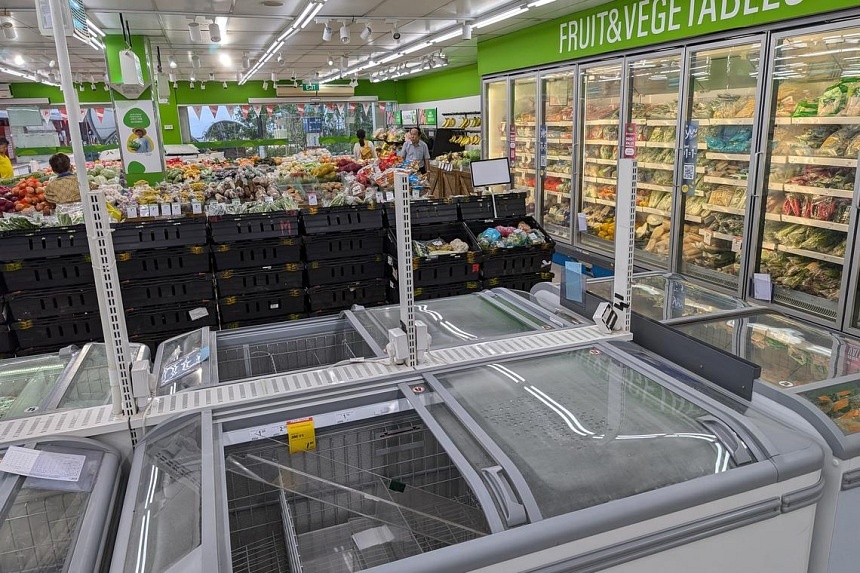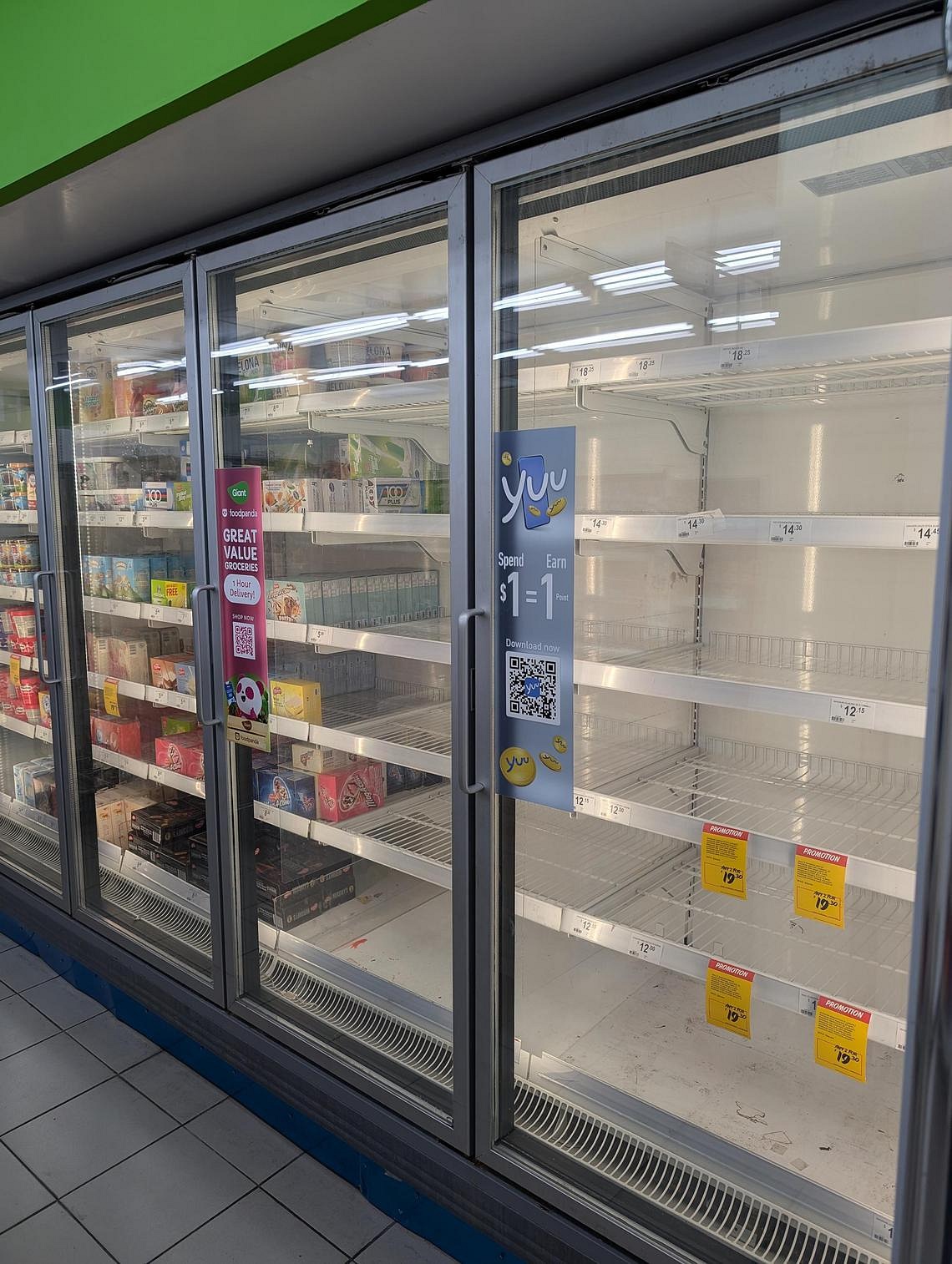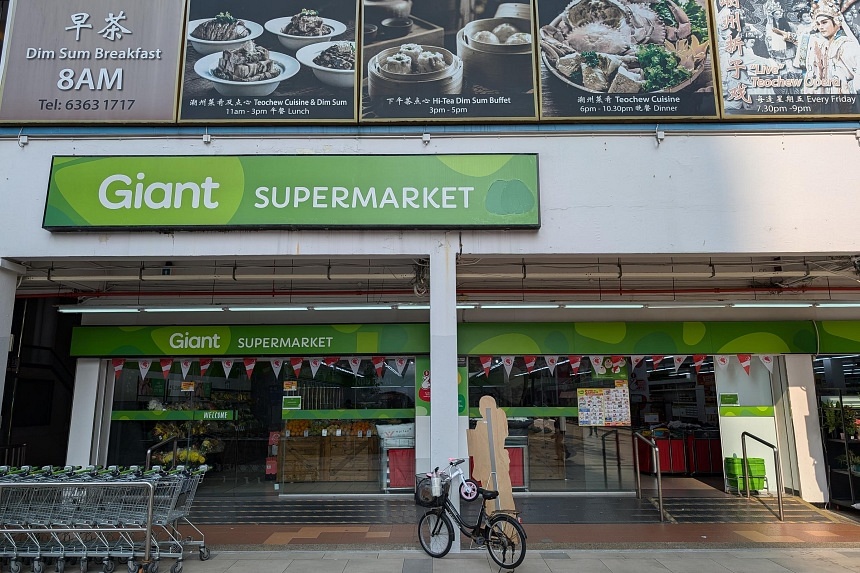SINGAPORE - Supermarket chain Giant will soon close its ninth store here in 2024, as it grapples with stiff competition from online retailers and other grocery stores.
Since February, Giant has closed a hypermarket in Sembawang Shopping Centre, three supermarkets in Bishan, Ang Mo Kio and Bukit Panjang, and four smaller “Express” stores in Nanyang Technological University, Pasir Ris, Redhill and Punggol.
The shutters will come down on the ninth store, its supermarket in Toa Payoh Lorong 4, later in September.
This closure will leave Giant with 45 outlets here, down from 53 in February. In 2024, the grocer opened a store in Tengah.
From 2020 to 2023, the number of Giant stores remained steady, hovering between 53 and 55.
The closures in Singapore come as Giant’s footprint in the region shrinks. Its parent company, DFI Retail Group, exited the Malaysian grocery market in March 2023 by selling its stake in GCH Retail, which runs the Giant, Mercato and Giant Mini chains there.
In 2021, retail group PT Hero Supermarket, of which DFI is a majority shareholder, closed all its Giant supermarkets in Indonesia after the group’s revenue dropped 34 per cent year on year.
Retail experts said DFI was likely pushed to close its Giant stores because of a combination of factors, among them high rental rates, competition from other supermarket chains and the shift towards online grocery shopping triggered by the Covid-19 pandemic.
When The Straits Times visited the Giant supermarket in Toa Payoh Lorong 4 on Sept 2, a staff member said business at the store had been poor in the past year, largely due to competition from two neighbouring FairPrice outlets – both less than a kilometre away.

The employee, who declined to be named, said staff were told by Giant’s management that they would be redeployed to Cold Storage outlets – which DFI also owns – after the store’s closure.
Although there were no closure notices around the store, two freezer units and several refrigerator shelves were empty.
There was also a sign on the wall at the outlet’s loading area that listed Sept 11 and 13 as the last days of inventory deliveries for frozen products and fresh food, respectively.

In April, the Business Times reported that DFI had put the 9,731 sq ft Housing Board retail unit occupied by the supermarket in Toa Payoh up for sale at a guide price of $16.5 million.
A DFI spokesperson said at the time: “By selling this store, we can strategically reallocate our resources to better focus on operating other stores, enhancing our overall customer experience.”
In its half-yearly earnings statement on Aug 1, DFI said “challenging consumer sentiment” had affected the sales performance of its food operations in Singapore, but added that “a better product margin mix and strong cost control significantly improved profitability”.
Asked about the local closures, a DFI spokesperson said the firm constantly evaluates its network and the positioning of its stores to meet market trends and consumer needs. “Giant and Cold Storage remain a core business of DFI Retail Group, and our commitment to growth and expansion in Singapore remains unchanged,” the spokesperson said.
Associate Professor Lau Kong Cheen, head of the marketing programme at Singapore University of Social Sciences’ School of Business, said Giant faces stiff competition in the crowded low- to mid-range category of supermarkets.
“Sheng Siong and FairPrice have been very dominant. And RedMart is able to leverage Lazada’s platform to cross-advertise,” he said.
Managing both the Giant and Cold Storage brands also means DFI has to spend more to advertise them separately, while shouldering higher logistical costs to stock a product mix that covers both high-end and budget products, Prof Lau added.
He said Giant’s “aggressive” store closures might signal that DFI is consolidating its grocery business under Cold Storage, which sells a range of premium and more expensive products.

Professor of marketing Kapil Tuli, from Singapore Management University, said DFI could be pivoting to the high-end market, where there are likely to be better margins. “That makes sense (for DFI) because Cold Storage stores tend to be in more affluent neighbourhoods, and that affordability parameter is in place,” he said.
In Toa Payoh, some residents, such as retiree Rohana Ahmad, 70, are sad to see the supermarket go.
“Groceries are cheaper here than at FairPrice, and the selection of seafood and meat here has always been better than at the Giant in Bishan,” said Madam Rohana, who has shopped there every fortnight for 20 years.
“I might go to the market more from now on, but it’s not always cheaper there.”

